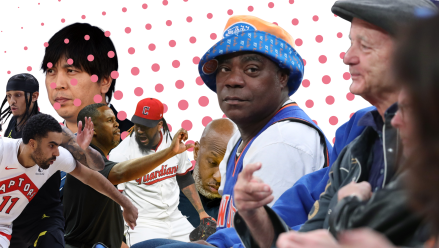What’s about to happen in California is like getting shingles. Like, when you get chicken pox as a kid, and then 50 years later the virus pops up again, but this time it’s shingles: Instead of itchy and annoying, it’s painful and miserable.
Yes, that’s what it is. Shingles.
I am speaking of the expected legal opinion coming from California Attorney General Rob Bonta that may deem all online fantasy sports illegal in the state, according to a report from KCRA. This would presumably run the gamut, from PrizePicks and Underdog and the rest of DFS 2.0 (fantasy pick’em games, mostly), all the way down to DFS 1.0 (traditional, peer-to-peer, line-up style contests), where DraftKings, FanDuel, and a few other operators continue to offer good old-fashioned daily fantasy.
Actually, let me reframe the above: It will almost certainly include DFS 2.0, but if Bonta decides to go all the way with this and include DFS 1.0 … well, if this feels like a Yogi Berra-esqe deja vu all over again situation, that’s because it would be.
Remember New York?
Ten years ago, then-New York state Attorney General Eric Schneiderman did the same thing. He deemed fantasy sports illegal. The death knell for DFS was upon us.
It was a bad case of chicken pox. (I’m sticking with this metaphor, sorry.)
Well, here’s what happened: Schneiderman issued cease-and-desist letters and got a court order, the lobbying began, the legislature stepped in and crafted a bill legalizing DFS, defining it as what it is — a game of skill — then-Gov. Andrew Cuomo signed the bill, and in 2022 the New York Court of Appeals overturned previous rulings and agreed with the operators that it was, indeed, a game of skill. (Oh, and Schneiderman resigned as AG, and got his law license suspended for a year after four women accused him of sexual abuse, which really has nothing to do with the DFS part of this story but I wanted to type the word “schadenfreude.”)
This same-enough story played out in other states, notably Illinois, where in 2020 the state’s Supreme Court ruled DFS a game of skill.
Of course, not all states agree with this. Nevada regulators say DFS is gambling and don’t allow it. Montana, Hawaii, Washington, and Idaho also ban DFS, saying it is gambling.
But every other state has either expressly legalized it, or allowed it to continue in this gray area, California included.
But, at least according to reports, not for long.
Sacramento TV station KCRA says Bonta is expected to issue his opinion in a matter of days, and what happens from there? Insert shrugging shoulders emoji.
So, yes — some 10 years after the virus first hit daily fantasy, it looks like it’s coming back.
And much like shingles, it’s almost certainly going to be worse.
What’s driving this?
The reason it’s probably going to be worse is due to a single word: tribes.
In New York, Schneiderman’s opinion made obvious waves. There were protests in and around Times Square. But there were no tribal gaming compacts factoring into the equation. Same in Illinois. Those states could afford a DFS squabble because the worst-case scenario was some operators temporarily shutting down while lawyers argued about skill versus chance. The stakes were relatively contained.
California? Yeah. Not so much.
Here, fantasy sports don’t just live in a legal gray area; it’s a gray area that has recently gotten very crowded and contentious with the rise of prediction markets (offering, effectively, sports betting) and sweepstakes casinos.
California has 109 federally recognized tribes, more than half of which operate casinos under gaming compacts with the state that come with exclusivity clauses more iron-clad than Jeff Bezos’ pre-nup (I’m guessing). These compacts grant tribes exclusive rights to offer certain types of gaming.
If Bonta declares DFS illegal, perhaps under pressure from the tribes, and operators keep running anyway (which they may choose to do), then the tribes will have footing for a gripe. They can point to those compacts and say, “Hey, we have exclusive rights to gaming in this state, and you’re letting these online companies operate illegal gambling operations while we follow the rules.” That’s not just a legal headache. That’s potentially a breach of compact that could trigger lawsuits, arbitration, or even a pause in the billions in revenue sharing.
There is precedent for this: In 2019, the Florida Seminoles stopped paying the state more than $30 million per month over a compact violation related to the state’s card rooms.
And on the flip side? If the AG says DFS is legal, or if the state tries to legislatively redefine it as a “game of skill,” you better believe the tribes will be demanding equal access.
As of 2023, the National Indian Gaming Commission (NIGC) reported that tribal casinos in California generated near $12 billion in gross gaming revenue that fiscal year. They employ over 125,000 people. They have serious — serious — political juice.
Why now?
On Monday, the California Nations Indian Gaming Association (CNIGA) sent a letter to the legislature, with the purpose to “inform you that certain fantasy sports operators may be seeking to introduce legislation regarding the legal status of fantasy sports games in California.”
The letter goes on to say that maybe the legislature should wait to act, because the AG’s office has been stewing on the legality of DFS since 2023.
“Should a bill be introduced before the Attorney General’s opinion is released and fully evaluated, we will be compelled to oppose it,” the letter concludes.
Again, that was Monday.
Wednesday, KCRA was first to report that Bonta was readying his opinion.
And while we haven’t seen the opinion yet, the expectation is that it will lean heavily on California’s definition of illegal gambling — namely, that any game involving a prize, consideration, and chance is off-limits without a license. If Bonta draws a hard line and includes both DFS 1.0 and 2.0? That’s DEFCON-1 for the industry.
When did this begin?
This particular episode started in 2023 when, as KCRA noted, state Sen. Scott Wilk (since term-limited) sent a letter to the AG’s office, asking them to look into the matter. He noted California law bans “games of chance” without a license, and specifically called daily fantasy sports the same. A game of chance.
(I’m going to need a quick aside here: It is not a game of chance. It’s been legally defined as a game of skill numerous times, and, as someone who has played DFS daily for over 10 years, I can attest to the skill involved. You cannot win if you don’t know what you’re doing. Can you get lucky? Sure. But over the long haul — and I’ll define “long haul” as “a couple of days” — skillful players who know how the game is played, and the psychology behind it, will win out. While it ain’t quite chess, it’s pretty damn close.)
But it goes back further, back to when Kamala Harris (‘memba her?) was the state’s attorney general in 2015. Clearly, she didn’t act when asked to look into the legality of DFS.
Apparently, however, the tribes never forgot about it.
Of course, CNIGA and the tribes aren’t just fighting DFS right now; they’re looking to exert control while at war with the sweepstakes industry, prediction markets, card rooms, and probably side bets over what mom’s cooking for dinner.
It’s a lot.
But as everyone reading this far knows, it’s the tribes’ world in California when it comes to gambling. Betting against them seems foolish.
Working with them is the only answer.
I wonder how many calls there have been between DraftKings, FanDuel, and CNIGA in the last 24 hours.
As to what happens next? Could be court fights. Could be the kind of legislative fustercluster only California can deliver.
Like shingles, this won’t kill the patient. But it’s going to be painful, lingering, and involve way more skin.





